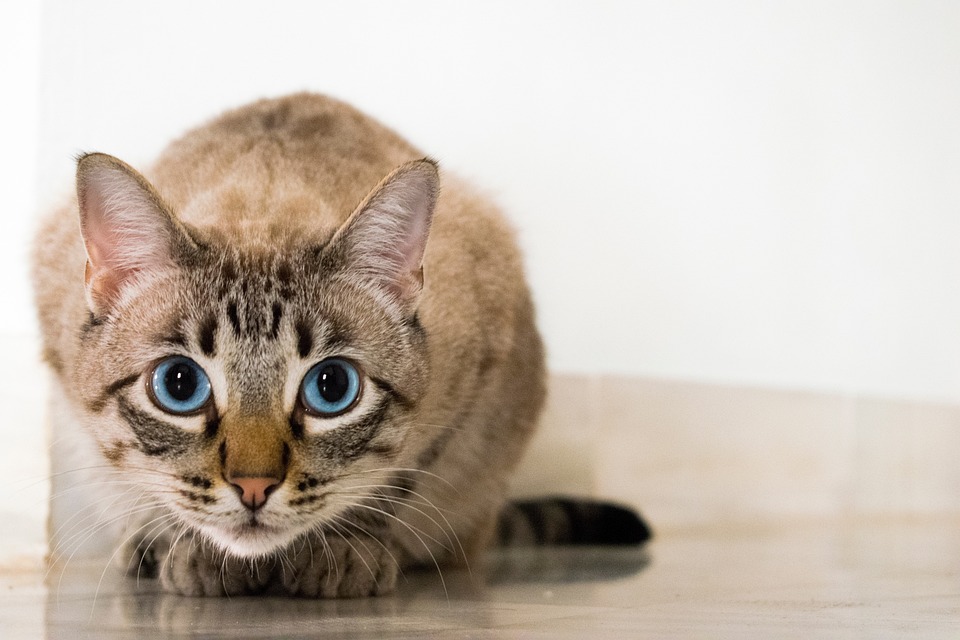**Preventing and Managing Hairballs in Cats with Gastrointestinal Sensitivity**
As a cat owner, you may be well aware of the dreaded hairballs that can plague your feline friend. However, when your cat also has a history of gastrointestinal sensitivity, dealing with hairballs becomes an even greater challenge. In this article, we will discuss effective ways to prevent and manage hairballs in cats with a sensitive stomach, ensuring their overall health and well-being.
Understanding the Link Between Hairballs and Gastrointestinal Sensitivity
Before diving into prevention and management techniques, it’s crucial to understand how hairballs and gastrointestinal sensitivity are interconnected. Cats groom themselves regularly, using their rough tongues to remove loose hair. While grooming is essential for their hygiene, it also leads to the ingestion of hair. In most cases, the ingested hair passes through the digestive tract and gets expelled in the litter box. However, cats with gastrointestinal sensitivity may struggle to eliminate hairballs efficiently, leading to digestive discomfort, vomiting, and even intestinal blockages.
Prevention Strategies for Hairballs in Cats with Gastrointestinal Sensitivity
1. Regular Brushing: Brushing your cat’s coat frequently can help remove loose hair before it is ingested during grooming. Focus on using brushes specifically designed for cats with sensitive skin to avoid irritation and discomfort.
2. Dietary Modifications: Consult your veterinarian to determine if a specialized diet is necessary for your cat’s sensitive stomach. High-quality, easily digestible cat food with added fiber can promote smoother digestion and reduce the formation of hairballs.
3. Hydration: Proper hydration is essential for cats with gastrointestinal sensitivity. Ensure your cat has access to fresh water at all times, as it helps lubricate the digestive system and aids in the passage of hairballs.
4. Supplement with Fiber: Adding a moderate amount of fiber to your cat’s diet can assist in preventing hairballs. Fiber acts as a natural lubricant, promoting regular bowel movements and minimizing the hairball formation.
5. Regular Veterinary Check-ups: Regular veterinary check-ups are crucial for cats with gastrointestinal sensitivity. Your vet can monitor your cat’s overall health, provide guidance on managing hairballs, and address any underlying digestive issues that may contribute to hairball problems.
Managing Hairballs in Cats with Gastrointestinal Sensitivity
1. Hairball Remedies: Consult your veterinarian about appropriate hairball remedies for cats with gastrointestinal sensitivity. Some remedies come in the form of flavored gels or pastes that help lubricate the digestive tract, making it easier for hairballs to pass through.
2. Increased Play and Exercise: Encouraging play and exercise can help stimulate your cat’s digestive system and aid in the natural elimination of hairballs. Engaging your cat in interactive play sessions with toys can also reduce stress, contributing to healthier digestion.
3. Regular Grooming Assistance: If your cat struggles with grooming due to gastrointestinal sensitivity, consider providing regular grooming assistance. Use a cat-friendly comb or brush to remove loose hair, paying extra attention to areas prone to matting and hair accumulation.
4. Environmental Modifications: Create a stress-free environment for your cat to minimize excessive grooming and subsequent hairball formation. Provide scratching posts, interactive toys, and comfortable resting areas to keep your cat mentally and physically engaged.
FAQs about Hairballs in Cats with Gastrointestinal Sensitivity
1. Are hairballs dangerous for cats with gastrointestinal sensitivity?
Hairballs can pose a higher risk for cats with gastrointestinal sensitivity as they may lead to digestive distress and potential blockages. It is essential to manage hairballs proactively to prevent any complications.
2. How often should I brush my cat’s coat to prevent hairballs?
Frequent brushing is recommended, especially for cats with gastrointestinal sensitivity. Aim for at least two to three brushing sessions per week, or even daily if your cat has a longer coat or sheds excessively.
3. Can I use over-the-counter hairball remedies for my cat with gastrointestinal sensitivity?
It’s best to consult your veterinarian before using any over-the-counter remedies. They can recommend suitable options based on your cat’s specific needs and medical history.
4. Are there any home remedies for managing hairballs in cats with gastrointestinal sensitivity?
While some home remedies like adding a small amount of canned pumpkin to your cat’s diet may help with hairball management, it’s crucial to consult your veterinarian before attempting any home remedies to ensure they are safe and appropriate for your cat.
Remember, every cat is unique, and what works for one might not work for another. Consulting your veterinarian is vital to develop a personalized hairball prevention and management plan tailored to your cat’s specific needs and gastrointestinal sensitivity. By taking proactive steps and ensuring proper veterinary care, you can help your feline companion live a happier, healthier, and hairball-free life.








